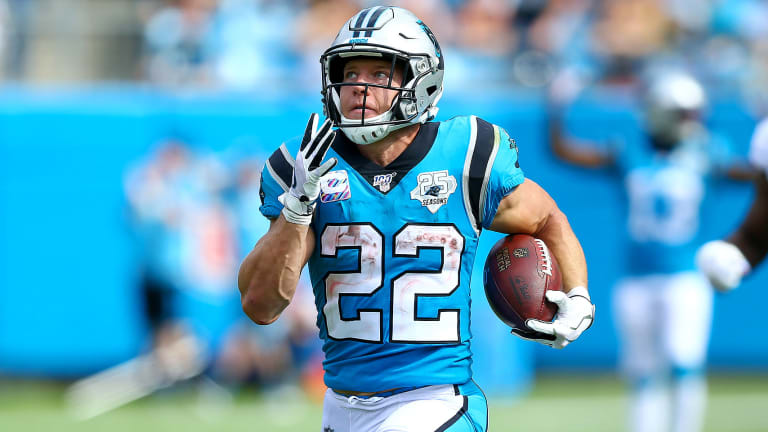Earlier this year we did a series called “Jock Talk”, which looked at ways to improve a prospective Jocker’s MLB strategy. With NFL season right around the corner, lets dive into NFL data from 2021 for some tips and tricks for the upcoming season.
Last week we looked at why cheap Quarterbacks can be a very profitable investment, this week we’re going to dig into the opposite scenario: When are players overpriced? Let’s start by investigating the position groups that we haven’t dove into yet: Running Backs and Wide Receivers, specifically the expensive ones.
RB/WR average return by IPO Price (Sample size above bar)

What is Short Selling?
Before we can discuss why it is a good idea to short sell these players, we have to talk about what short selling is. If an investor thinks the price of an asset is too high, they can “sell” shares they don’t own to buyers willing to pay the market price. In the case of Jock MKT, the investor must then buy the asset back at their final price at the end of the market (or buy out of their position at some other time while the market is still live). In other words, if you think a players breakeven rank is too high, that’s the time to short them.
Jock MKT Example
An example of this in a Jock MKT context would be something like the following:
You are looking at Davante Adams and see he has a great first half, putting up 60 yards and a touchdown and has current bid of $20, implying that he will finish in second place in the market. You look at the score and see the Raiders up 28-3, you believe there is no way they will continue to throw the ball and decide that it is very unlikely that Adams ends up finishing in second place.
To act on your hunch, you short sell 3 shares of Adams to the trader with the bid of $20. Jock MKT’s maximum share price is $25, meaning that the most you can possibly lose is $5 per share, if Adams wins the market and you have to buy back the share you sold for $25.
What’s your upside? Well, let’s say the Raiders rest Adams in the second half as they cruise to victory and protect their star wideout from injury. Adams price drops and finishes at $10. You make $10 per share, after buying back the shares you sold at $10, netting you $30 total.
Your theoretical upside is actually far greater. Because the lowest possible price for Adams is $1 (unlikely, but theoretically possible) your max payout is $19 per share. Even though the second scenario is unlikely, the upside is FAR higher than the downside for expensive players because you risk a small amount to potentially win much more than that.
Long Term Potential

The results are clear: when it comes to expensive skill position players, short selling is the way to go. If you had short sold 1 share of every RB + WR in all our markets in 2021, you would have made just over $250 last season. By shorting the most expensive skill position players, you put yourself in the coveted “low risk/high reward” situation that leads to long term profitability. We also bring uncertainty/risk to our advantage, just like with cheap QBs. With high priced skill position players, we utilize uncertainty/risk in a slightly different way.
What happens to our profits if a lower priced WR/RB gets hurt during the game? Let’s say you bought shares of Hunter Renfrow for $4 instead of Davante Adams in the previous example. If he gets hurt in the second quarter and only pays out $1, you’re only losing $3 per share. But what if you paid top dollar during IPO for a receiver of Adams caliber at $12?
Because of your high initial investment in Adams, his hypothetical injury and subsequent $1 per share payout costs you $11 per share instead of the $3 that Renfrow did. When you buy shares of expensive skill position players like Adams during IPO you are exposing yourself to a large loss in the case of unknown factors such as injury. By short selling instead, you use that risk to your advantage and give yourself the opportunity to win BIG in situations where buying shares would have cost you a pretty penny.
A great real life example of this is Christian McCaffery on Thursday Night Football. He IPO’d for a Jock MKT NFL Record $19.10 per share, but got hurt in the second quarter and finished at a measly $4 per share, costing investors $15 per share in losses. If you had shorted McCaffery you would have raked in that $15 per share as a profit instead of loss!
Put uncertainty + low risk/high reward to your advantage with shorting in Jock MKT!
Article Specific + 2021 NFL Data!
Looking to do some analysis of your own? We have all the data from this article right here and the data for ALL of last year right here, so get busy because NFL season can’t get here soon enough!




